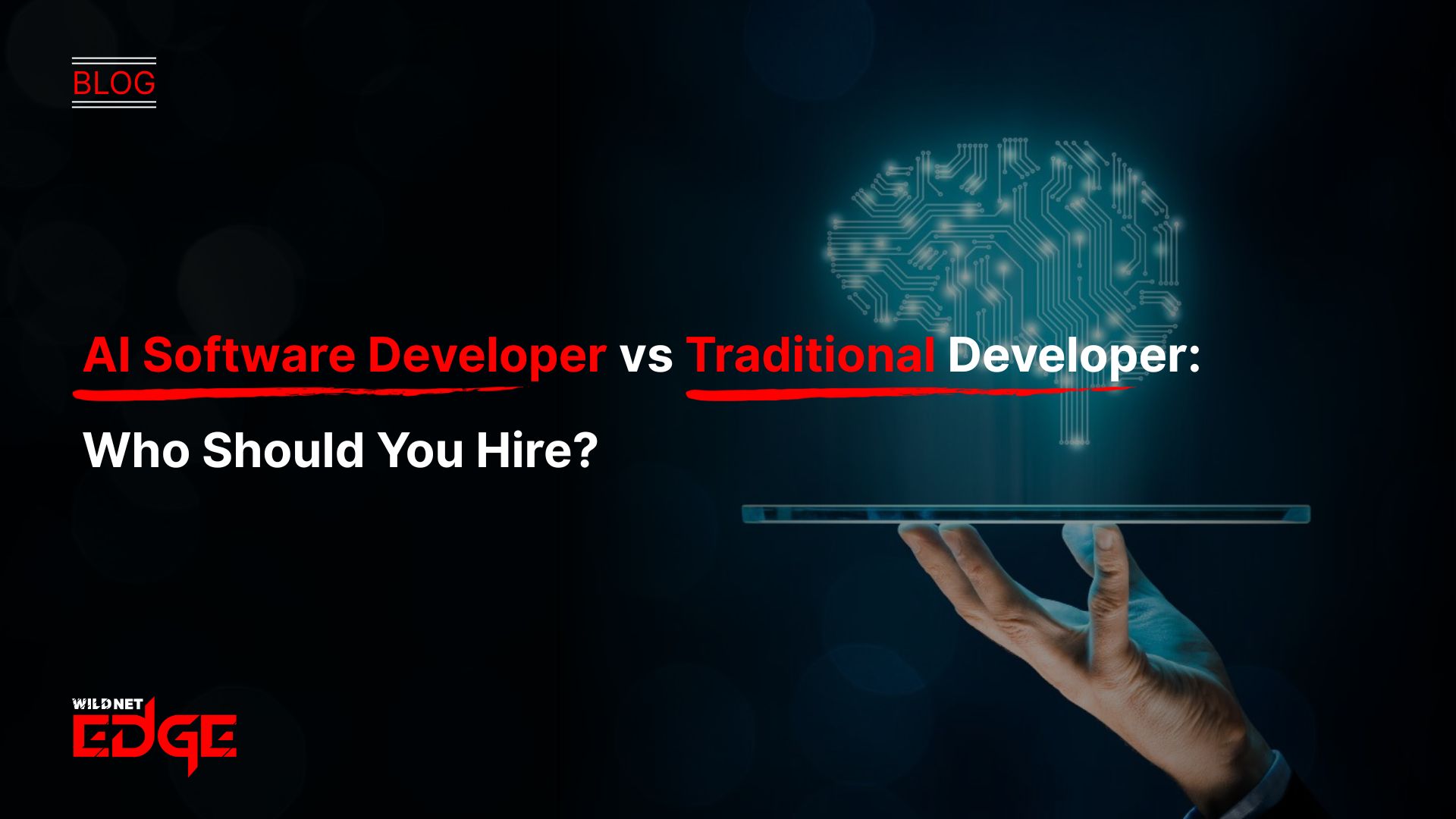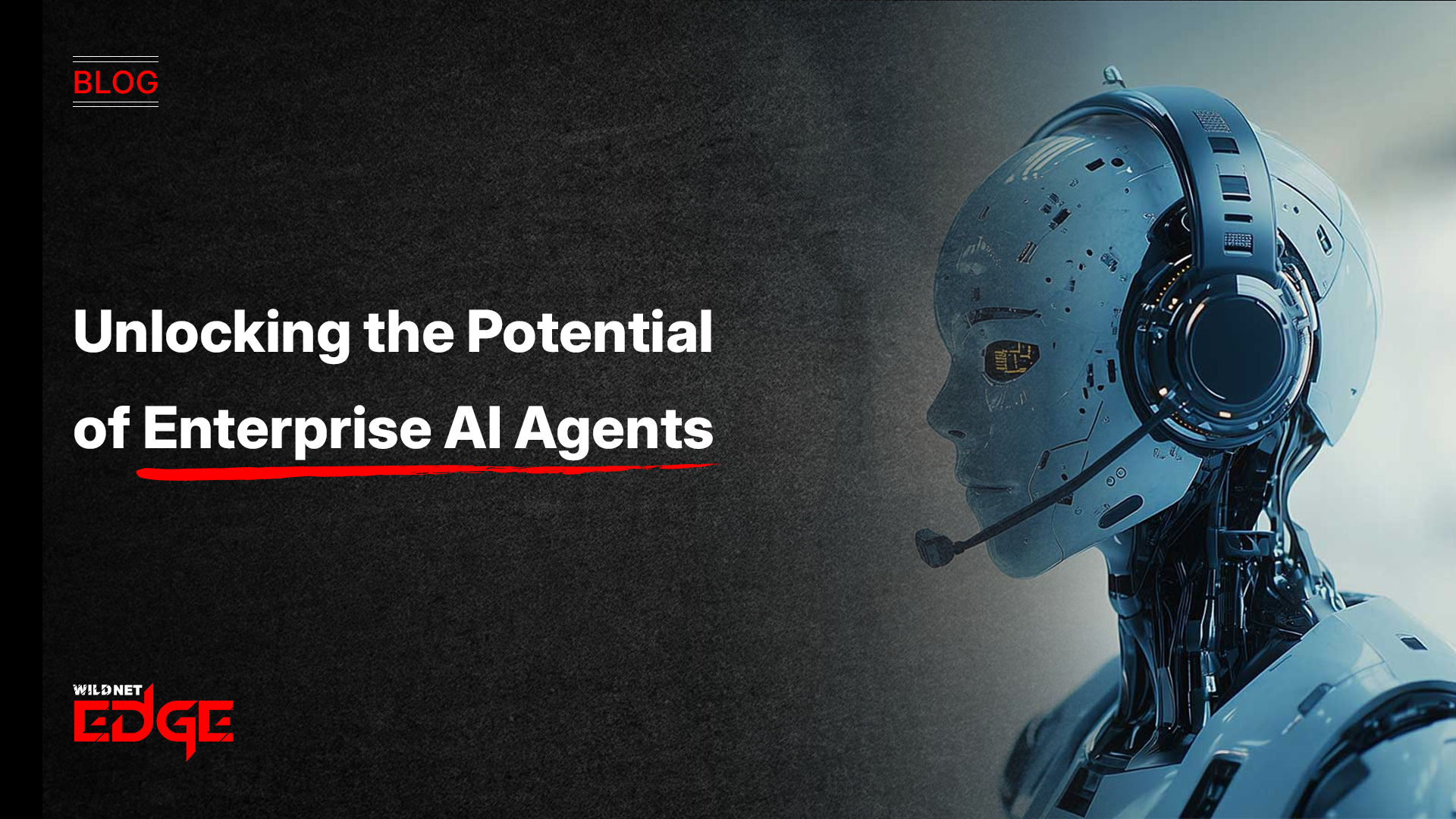Struggling to decide between hiring an AI software developer or a traditional developer? If you’re wondering which type of talent can truly transform your project in today’s fast-paced tech landscape, you’re not alone. Locking in the right developer is crucial to future-proof your business and scale efficiently. In this guide, we’ll break down the key differences and help you understand when to hire an AI developer versus a traditional developer — ensuring you make the smartest investment possible.
Who Is an AI Software Engineer?
An AI software engineer is a specialist who designs, develops, and implements intelligent algorithms and systems that enable machines to perform tasks that typically require human intelligence. Unlike traditional developers who build conventional software applications, AI software engineers focus on creating solutions that learn, adapt, and optimize themselves over time.
Definition and Scope
AI software engineering encompasses machine learning, deep learning, natural language processing (NLP), computer vision, and data modeling. These engineers work with vast datasets to train models that can recognize patterns, make predictions, and automate complex decision-making processes.
Core Skills
To excel as an AI software developer, one must master several specialized skills:
- Machine Learning (ML): Building predictive models using supervised, unsupervised, and reinforcement learning techniques.
- Natural Language Processing (NLP): Developing systems that understand and generate human language—for example, chatbots or sentiment analysis tools.
- Data Modeling and Analysis: Extracting meaningful insights and structured data representations from raw inputs.
- Mathematics and Statistics: Strong foundation in linear algebra, calculus, probability, and statistics for algorithm development.
Typical Tools and Frameworks
AI engineers use modern tools and platforms designed to simplify developing and deploying intelligent applications:
- TensorFlow and PyTorch: Popular deep learning frameworks for neural network development.
- scikit-learn: Essential for classical machine learning algorithms.
- OpenAI API, Hugging Face Transformers: For leveraging pretrained models and NLP solutions.
- Jupyter Notebooks: Interactive coding environment optimized for data exploration.
- Cloud Platforms: AWS SageMaker, Google AI Platform, and Azure ML for scalable AI model training and deployment.
Use Cases Where AI Engineers Bring Unique Value
AI software engineers shine in projects where automation, intelligence, and scalability are paramount:
- Predictive maintenance in manufacturing using sensor data.
- Personalized recommendation engines in e-commerce.
- Automated fraud detection in banking and finance.
- Real-time language translation and transcription services.
- Advanced autonomous systems in automotive or robotics.
Understanding this role clearly differentiates AI developers from traditional software engineers, making it easier to select the right candidate for your project.
Hire AI Developer vs Traditional Developer: Key Differences
Choosing between hiring an AI developer and a traditional developer requires understanding their fundamentally different skill sets, work approaches, and project suitability. While their paths overlap in software engineering, the disparity is significant.
Technical Skillset Comparison
Traditional developers typically excel in general-purpose programming languages like Java, C#, JavaScript, or Ruby. They build robust, scalable applications from frontend user interfaces to backend services, relying heavily on well-established design patterns and software architecture principles.
AI software developers, in contrast, need proficiency in Python and R, especially for statistical analysis and ML libraries. They require deep knowledge of algorithms, data preprocessing, feature engineering, and model evaluation. Additionally, an AI developer’s role often stretches into data science territory, merging coding with analytical prowess.
Problem-Solving Approaches
Traditional developers solve problems with deterministic logic—writing if-else conditions, managing state flows, and orchestrating user interaction smoothly. Their output follows clear user requirements and business logic.
AI developers handle uncertainty and probabilistic outcomes. Their solutions must adapt to noisy data or imperfect inputs, requiring iterative experimentation to tune model parameters and measure performance using accuracy metrics rather than just functional correctness.
Project Complexity and Innovation Level
If your project demands standard web or mobile applications, database management systems, or internal productivity tools, traditional developers are your go-to resource.
However, initiatives involving predictive analytics, automation of manual processes, or new intelligent capabilities lean heavily toward the expertise of an AI software engineer. These projects typically involve researching novel algorithms and often push the envelope of available technology.
Cost and Time Differences When Hiring
Hiring an AI developer generally involves higher compensation due to scarce talent and specialized expertise. Additionally, AI projects often have longer development lifecycles because of data collection, model training, and iteration phases.
Traditional development tends to be more predictable and quicker in turnaround, with clearer project scopes and deliverables. The cost-benefit analysis should factor in the potential long-term value AI can add, not just upfront expenses.
When Should You Hire an AI Software Developer?
Knowing when to bring an AI software engineer on board versus sticking with traditional developers can make or break your project’s success.
Projects Requiring Automation, Predictive Analytics, and Intelligent Features
If your business aims to introduce automation that learns and evolves — such as chatbots, recommendation systems, or real-time data monitoring — an AI developer is essential. They can transform routine workflows into self-optimizing systems.
Predictive analytics, from sales forecasting to customer churn predictions, rely on sophisticated statistical models and algorithms beyond the reach of conventional code.
Enhancing Customer Experience with AI-Driven Solutions
AI-powered personalization, voice assistants, or computer vision features elevate user engagement. To implement these, you need AI specialists who understand how to harness sensory or textual data to deliver relevant, intuitive experiences.
For example, an AI software engineer can build a virtual shopping assistant that adapts product suggestions based on browsing habits and past purchases — a functionality traditional developers alone cannot create.
Handling Big Data and AI-Powered Decision-Making
When your project involves processing massive datasets or real-time streams (think IoT or financial transactions), AI engineers deploy scalable machine learning pipelines for effective insights.
They design models that improve over time, enabling automated decision-making that reduces manual effort and accelerates response times, critical for industries like healthcare or logistics.
Limitations of Traditional Development for AI Tasks
Traditional developers aren’t typically equipped to build intelligent systems that learn from data or operate under uncertainty. Attempts to solve AI problems with conventional coding usually fall short in adaptability and scalability.
In scenarios demanding cognitive abilities or pattern recognition, hiring an AI software developer is not just recommended—it’s indispensable.
Future Trends and Advanced Hiring Tactics for AI Software Developers
The AI development landscape is evolving rapidly, with novel trends shaping how companies source and retain AI talent.
Rise of Specialized AI Roles and Cross-Disciplinary Skills
AI roles are diversifying, including specialties like ML engineers, data scientists, NLP experts, and computer vision engineers. Many projects require collaboration across data science, software engineering, and domain expertise.
Hiring managers should look for candidates demonstrating hybrid skillsets and flexibility to work across disciplines.
Importance of Continuous Learning and Upskilling
As AI frameworks and methods rapidly evolve, top AI software developers maintain an active learning habit—participating in communities, completing certifications, and experimenting with new algorithms.
Organizations benefit from fostering continuous professional development or partnering with providers who offer access to upskilled developers.
Leveraging Hybrid Teams Combining AI Engineers and Traditional Developers
Modern projects often integrate AI components within broader software systems. Successful teams blend AI software engineers with traditional developers who maintain infrastructure, user interfaces, and backend logic.
This collaboration accelerates delivery while ensuring AI models are robustly deployed and integrated.
Tips for Evaluating AI Developer Portfolios and Coding Tests
When hiring AI developers, focus on:
- Project diversity: Are models developed for varied domains?
- Problem complexity: Has the candidate tackled real-world AI challenges, such as imbalanced datasets or multi-modal data?
- Code quality: Review not just results but also maintainability, documentation, and modular design.
- Practical tests: Assign problem-solving tasks involving data preprocessing, model training, and deployment scenarios.
Using AI-specific coding interviews or Kaggle competition participation can help identify high-potential candidates.
Conclusion
Choosing between an AI software developer and a traditional developer depends on your project’s complexity and innovation requirements. AI engineers bring advanced capabilities that can unlock new competitive advantages, such as intelligent automation, customer personalization, and big data analytics. Nevertheless, traditional developers remain vital for many foundational tasks, including building stable, user-friendly applications and managing software infrastructure.
By understanding the unique value and limitations of each, you can make an informed hiring decision that aligns perfectly with your business goals. If you want to navigate this hiring decision confidently, WildnetEdge offers expert guidance and access to top AI software engineers who can elevate your technology stack. Connect with WildnetEdge today to build the future-ready team your business deserves.
FAQs
Q1: What does an AI software developer do differently from a traditional developer?
An AI software developer specializes in building intelligent systems using machine learning and data-driven algorithms, while traditional developers focus on standard software applications and features.
Q2: How do I hire an AI developer for my company?
Look for candidates with strong AI and machine learning experience, evaluate their project portfolios, and assess problem-solving skills relevant to your AI use cases.
Q3: What projects require an AI software engineer instead of a traditional developer?
Projects involving automation, predictive analytics, natural language processing, or large-scale data analysis typically need AI software engineers.
Q4: Are AI software developers more expensive to hire than traditional developers?
Generally, yes. AI developers usually command higher salaries due to specialized skills, but the ROI can justify the investment for complex, innovative projects.
Q5: Can a traditional developer learn AI development skills?
Absolutely. Many traditional developers upskill to become AI software engineers by learning machine learning concepts, tools, and programming languages like Python.

Nitin Agarwal is a veteran in custom software development. He is fascinated by how software can turn ideas into real-world solutions. With extensive experience designing scalable and efficient systems, he focuses on creating software that delivers tangible results. Nitin enjoys exploring emerging technologies, taking on challenging projects, and mentoring teams to bring ideas to life. He believes that good software is not just about code; it’s about understanding problems and creating value for users. For him, great software combines thoughtful design, clever engineering, and a clear understanding of the problems it’s meant to solve.
 sales@wildnetedge.com
sales@wildnetedge.com +1 (212) 901 8616
+1 (212) 901 8616 +1 (437) 225-7733
+1 (437) 225-7733















 ChatGPT Development & Enablement
ChatGPT Development & Enablement Hire AI & ChatGPT Experts
Hire AI & ChatGPT Experts ChatGPT Apps by Industry
ChatGPT Apps by Industry ChatGPT Blog
ChatGPT Blog ChatGPT Case study
ChatGPT Case study AI Development Services
AI Development Services Industry AI Solutions
Industry AI Solutions AI Consulting & Research
AI Consulting & Research Automation & Intelligence
Automation & Intelligence















